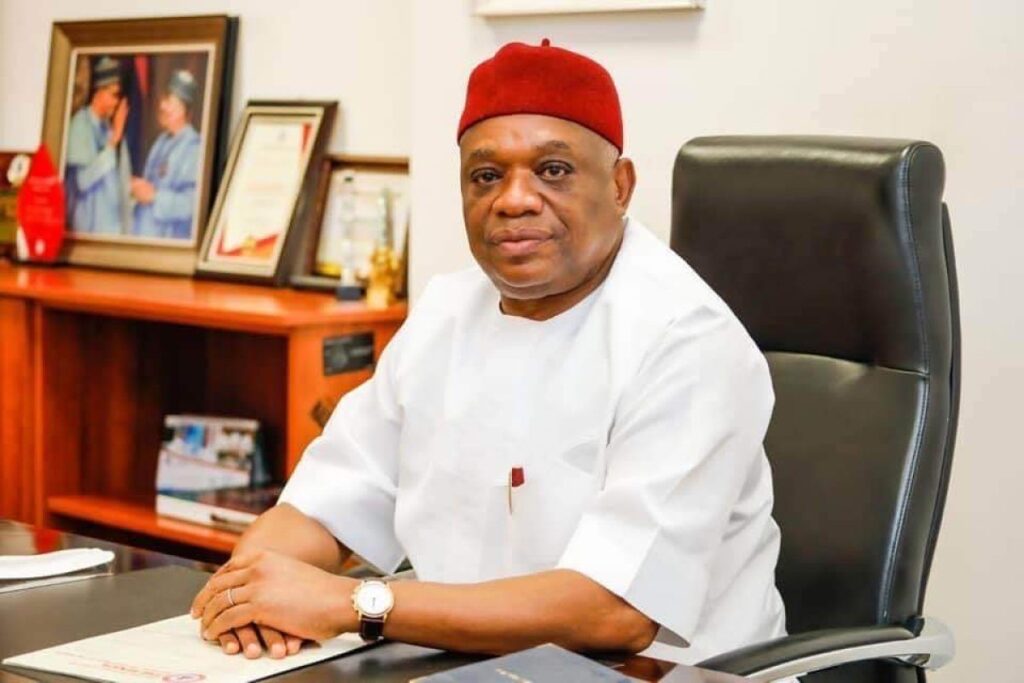By Rubby Obinna, Lagos
In a recent political discourse, Senator Orji Kalu, former Governor of Abia State and current senator representing the Abia North constituency, made a bold assertion that has reignited conversations about his tenure in office.
“I built Abia and I saved funds for Abia State as governor,” he declared, prompting both admiration and scepticism among political analysts and citizens alike. This statement encapsulates a broader narrative about the challenges and triumphs of governance in Nigeria, particularly in the southeastern region.
Orji Kalu served as the governor of Abia State from 1999 to 2007, a period marked by significant political turbulence and economic challenges. After nearly three decades of military rule, Nigeria transitioned to a democratic system, and the expectations for governance were astronomically high. Kalu’s rise to power came with promises of infrastructural development, economic rejuvenation, and social welfare initiatives. He was seen as a beacon of hope for a state that had struggled with underdevelopment and corruption.
In his recent remarks, Kalu emphasised the infrastructure projects initiated during his administration. He pointed to the construction of roads, schools, and healthcare facilities as pivotal achievements that transformed the state’s landscape. According to Kalu, these developments were not just physical structures; they were lifelines for the people of Abia, designed to foster economic growth and improve living standards. “When I took office, Abia was in dire need of infrastructure. I made it my mission to ensure that we laid a solid foundation for future generations,” he stated passionately.
Kalu’s administration is often credited with revitalising the commercial sector in Abia State, especially in Aba, which is renowned for its vibrant markets and entrepreneurial spirit. Under his leadership, the state saw an influx of small and medium-sized enterprises, a move that significantly contributed to job creation and economic stability. Kalu argued that by saving funds and investing in local businesses, he was able to empower citizens and reduce unemployment rates. “I did not just build roads; I built opportunities for our people,” he added.
Kalu’s claims attract attention to a critical aspect of Nigerian politics: the legacy of leaders. In a country where leadership is often scrutinised, the ability of past governors to articulate their achievements can significantly impact future electoral outcomes. As Kalu continues to champion his record, other political figures in Abia State and beyond are likely to respond, either by challenging his narrative or by trying to emulate his success.


